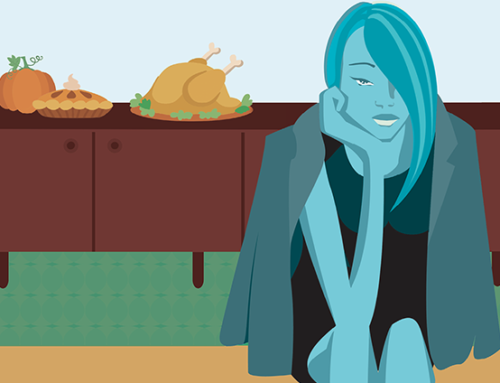When people think of anxiety, they typically think of a person who is unable to function in the world. They think of someone who is trapped in their house, unable to hold a job or to make friends. Or someone who has panic attacks and feels physical sensations similar to a heart attack. While these can be true, for many more people, anxiety has smaller, but still very significant effects. In fact, anxiety may impact more people than you might realize. Studies estimate that 19-30% of the population have experienced significant anxiety symptoms in their lifetimes. So, what are the common symptoms of anxiety?
Physical symptoms
- difficulty falling asleep and/or staying asleep
- digestive problems
- muscle tension
- fidgeting / nervous tics
- heart racing
Mental/Emotional symptoms
- constant worry
- a sense that something bad is about to happen
- feeling nervous and on edge
- trouble concentrating
Feeling these symptoms occasionally, such as before a job interview or a big presentation, is relatively normal. However, if you experience any of these symptoms at least 3 or 4 days out of the week, you may have some anxiety. When these symptoms become more pervasive and you can’t get relief from them even after a stressful situation has passed, then it can get in the way of living fully.
In some cases, people may not even recognize the emotional or mental symptoms of anxiety. Rather, they only experience the physical symptoms, and they brush those off as being a normal part of their lives. Anxiety can actually be the root cause of these complaints, but people don’t see the anxiety and take sleeping pills and antacids to resolve their physical complaints!
Anxiety isn’t a weakness. It’s not a lack of mental strength of willpower. It’s a real condition that has a real impact on your life. But with proper awareness and care, anxiety can be managed.
If you’re struggling with any of these symptoms of anxiety,please consider talking to a medical professional or contacting us to schedule an appointment.




